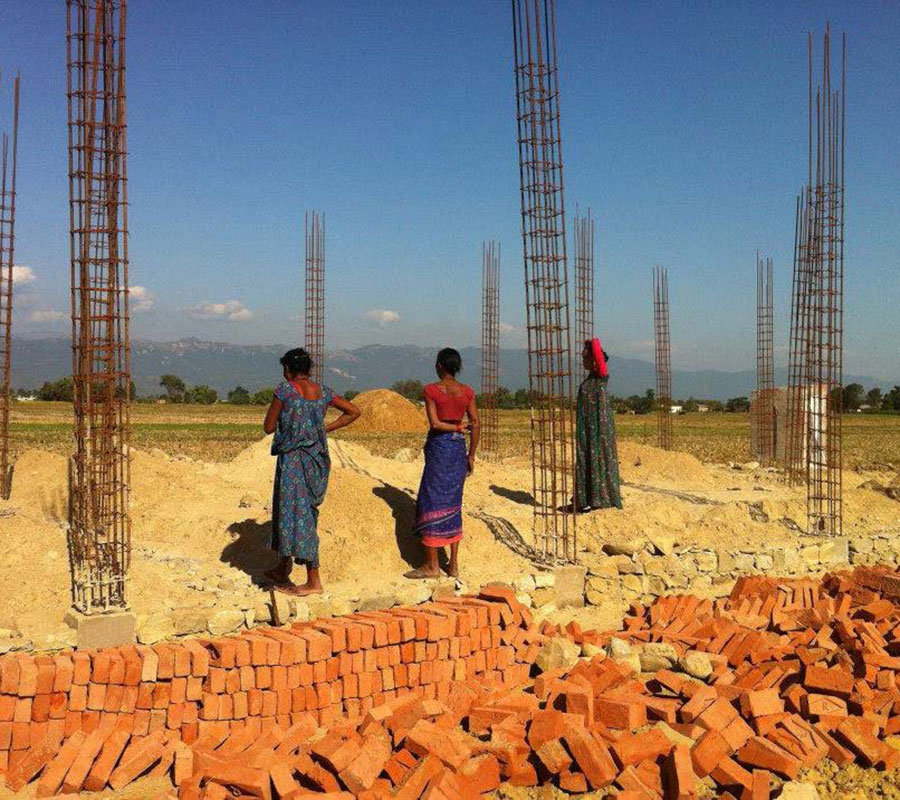In an era characterized by discord and fragmentation, one might ponder: How can individuals from diverse backgrounds forge a cohesive community that genuinely fosters understanding and unity? The Bahá’í teachings provide profound insights on community building as a pivotal mechanism to overcome societal schisms and pave the way for global harmony. This notion is not merely an abstract ideal; it is a practical approach rooted in the principles and communal ethos espoused by the Bahá’í Faith.
At the core of Bahá’í teachings lies the conviction that humanity constitutes a single race. This overarching belief is foundational to community building, as it emphasizes the necessity of recognizing and valuing diversity. Bahá’ís advocate for the elimination of prejudices of all forms, asserting that prejudiced attitudes and actions serve as formidable barriers to unity. By adopting an inclusive mindset, individuals can become catalysts for change within their communities, fostering an environment that celebrates differences rather than succumbing to division.
Moreover, community building, as envisioned in Bahá’í teachings, is not a passive endeavor; it necessitates active engagement. The principles of consultation play a vital role here. In the Bahá’í context, consultation transcends traditional decision-making processes. It embodies a collaborative spirit that encourages each participant to contribute their insights and experiences. This communal dialogue cultivates a sense of belonging and shared purpose, thereby enhancing collective decision-making. Imagine a local neighborhood that thrives on collaborative discussions, where every voice is valued and respected—such an environment not only empowers individuals but also instills a profound sense of ownership over community initiatives.
Yet, fostering a spirit of collaboration poses its own challenges. Disagreements are inevitable, and navigating these waters requires patience and a commitment to upholding the principles of unity. This calls for adept skills in conflict resolution and an ability to embrace differences not as obstacles but as opportunities for growth. For many, this shift in perspective may prove daunting. How can one effectively engage in discussions where viewpoints differ significantly? The answer lies in cultivating an attitude of humility and a genuine desire to understand. By approaching dialogues with an open heart and mind, individuals can contribute to a milieu of respect and empathy, essential for successful community building.
The Bahá’í Faith further emphasizes the importance of service as a cornerstone of community development. The concept of service extends beyond mere volunteerism; it encompasses a dedicated commitment to uplifting the lives of others. Service is viewed as a way to enact the principle of oneness and to manifest love in action. By participating in community service initiatives, individuals not only address immediate needs but also cultivate an interconnected network of support. Activities may range from organizing educational workshops to participating in environmental sustainability efforts. Each act of service, regardless of size, contributes to strengthening community ties and nurturing an atmosphere of collective advancement.
Education plays a pivotal role in enriching community life. The Bahá’í teachings stress the importance of education for all, positing that knowledge is an essential tool for personal and collective empowerment. In many communities, educational initiatives may take the form of classes, workshops, or collaborative study groups that bolster understanding across diverse populations. By prioritizing education, communities can cultivate informed citizens who are better equipped to engage with societal challenges, thereby creating a ripple effect that promotes further participation and unity. How can we harness the power of education to uplift not just individuals, but entire communities? The potential for impact lies in our collective commitment to fostering accessible and equitable educational opportunities.
Acknowledging the multifaceted nature of community life, the Bahá’í framework also encapsulates the significance of spirituality in community building. Spirituality, in this context, fosters a deeper connection among individuals and reinforces the belief in a shared purpose. Through spiritual gatherings, individuals can engage in reflective practices that not only promote personal growth but also strengthen communal bonds. Such gatherings can serve as a platform for reaffirming shared values and aspirations, thereby uniting individuals under a common vision of service and cooperation.
As the world grapples with pressing issues such as climate change, social injustice, and inequality, the urgent call for community building becomes ever more pronounced. A united community can tackle these challenges more effectively than isolated efforts. By fostering a culture of collaboration, inclusivity, and service, communities can mobilize resources and knowledge in unprecedented ways. The Bahá’í teachings urge individuals to not only address immediate concerns but also to envision a future where individuals work harmoniously towards the collective good.
In conclusion, the Bahá’í teachings provide a compelling blueprint for community building as a practical means to unite the world. Through the principles of inclusivity, consultation, service, and education, the ideal of a cohesive community can transform from aspiration into reality. The challenge lies not only in implementing these principles but also in nurturing the resolve to persist in the face of adversity and discord. As individuals commit to this noble endeavor, they become integral players in the manifestation of a global community characterized by cooperation, understanding, and love. In such a world, the potential for transformative change becomes limitless.
